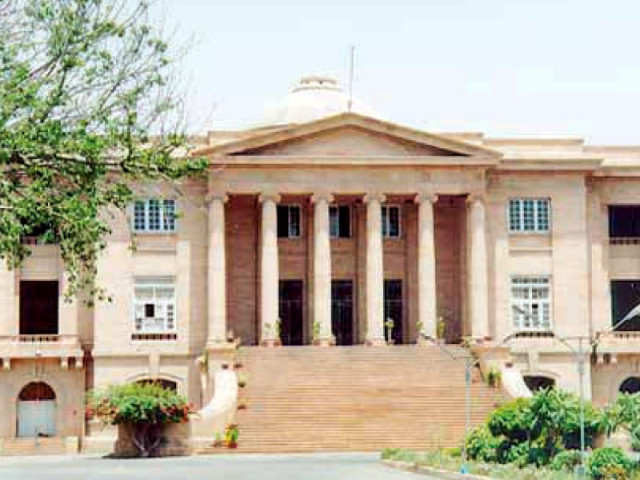SHC dismisses plea against quota system
Petition had sought allocations be declared null and void

A division bench of the Sindh High Court (SHC), comprising Justice Salahuddin Panhwar and Justice Adnanul Karim Memon, dismissed a constitutional petition against the quota system. The petition was filed by Pasban Democratic Party (PDP) Chairman Altaf Shakoor through his lawyer Advocate Irfan Aziz, naming the Federation of Pakistan and others as respondents.
The petitioner had prayed to declare the quota system null, void, illegal and unconstitutional after its expiry date as per the Constitution of Pakistan. He asked that the respondents cancel all the appointments made on the basis of the quota system after the date of its constitutional expiry in 2013 and refill all these vacant slots on the basis of pure merit through open competition.
The petitioner also prayed to that the respondents be restrained from using the abolished and expired quota system for the allocation of jobs/ services in the federal/provincials civil services. He asked that the relevant authorities direct the respondents to make appointments on a merit basis, irrespective of the quota system.
The counsel for the petitioner, while reiterating the pleadings, further contended that the quota system is seriously affecting the merit of deserving candidates. "Federal and provincial authorities are misusing the same to accommodate their favorite candidates on the basis of quota system." He further argued that the quota system is discriminatory and after the lapse of proviso, with regard to the period of 40 years, has become redundant. It was urged that the recruitments are to be made on the basis of Article 27(1), of the Constitution. It was further stated that all the appointments, made on the basis of quota system after 2013, are liable to be declared null and void.
Read: SHC to hear local bodies’ empowerment petitions
DAG Muhammad Nishat Warsi and AAG Ali Safdar Depar argued that in compliance with the directions of the prime minister, dated April 29, 2019, a summary was forwarded to the Cabinet Division on May 7 of the same year for placement of the matter before the Cabinet Committee for disposal of legislative cases (CCLC) for consideration and recommendations to be considered by the cabinet.
The court, in its verdict, said the Constitution says the participation of people from all parts of the country can only be made on the basis of the quota of the provinces set out by the authority concerned as ensured under articles 37 and 38. The verdict stated it would be pertinent to see that whether with this litigation, the petitioner's object was to achieve political mileage or ambition and/or purely other individual interest and if the petition, styled as public-interest litigation, was essentially a political-interest litigation.
"Hence, is the same liable to be dismissed on this ground? To answer this, we have examined the pleadings and admittedly the petitioner belongs to a political party and holding an office of the same. We are also mindful that just because the petitioner is from a political party, it does not ipso facto mean that he is debarred all the time from invoking the court's process as public interest litigation. However, political interest cannot be enforced through the process of this court under Article 199 of the Constitution under the garb of a Public Interest Litigation.
It is the duty of this Court to discourage such petitions and to ensure that the course of justice is not obstructed or polluted by unscrupulous litigants by invoking the extraordinary jurisdiction of this court for personal matters under the garb of the public interest litigation.
There is material to show that a petition, styled as public-interest litigation, is nothing but a camouflage to foster political interest.
Published in The Express Tribune, March 20th, 2022.



















COMMENTS
Comments are moderated and generally will be posted if they are on-topic and not abusive.
For more information, please see our Comments FAQ